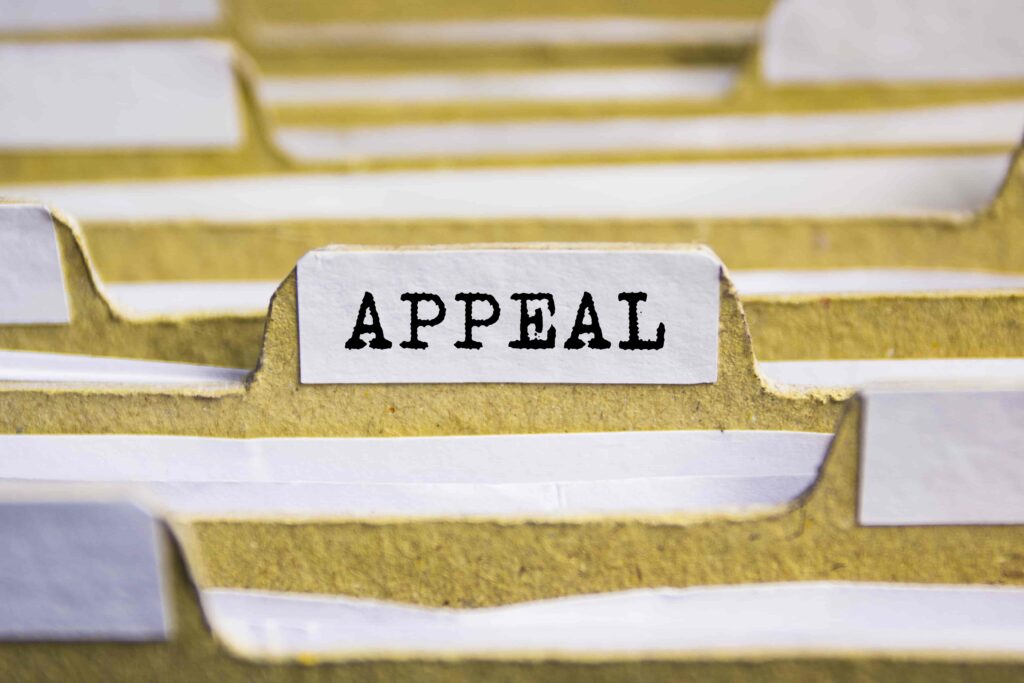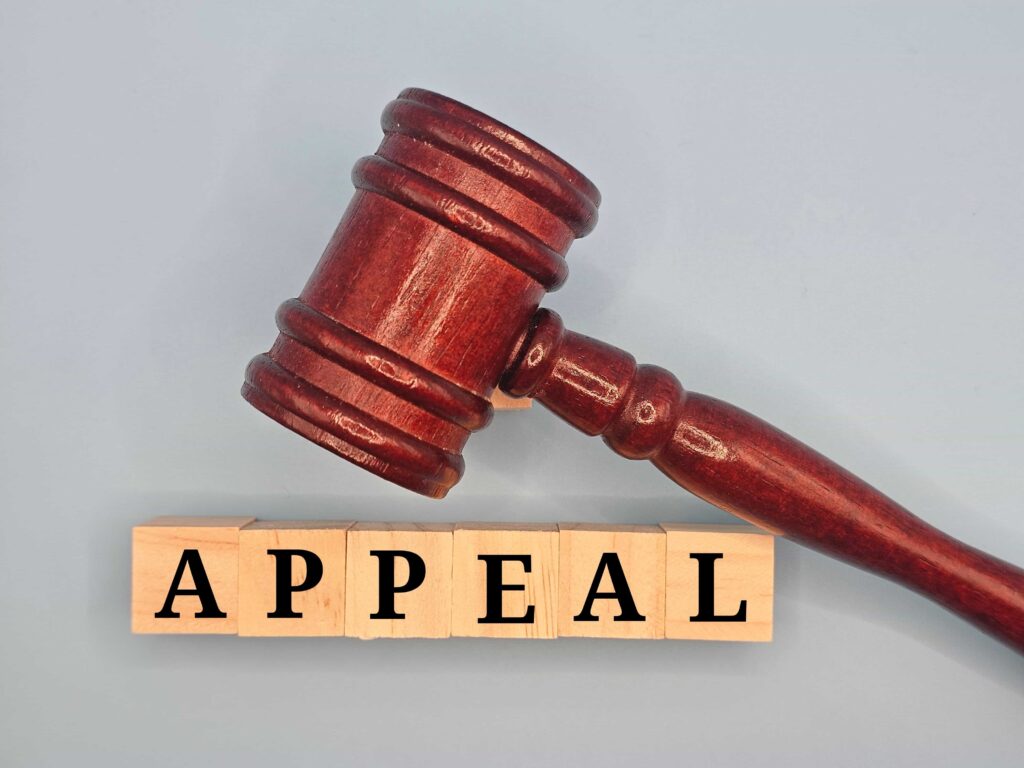When a legal decision doesn’t go your way, the appeals process offers an opportunity to challenge the outcome of a case. In Rockville, Maryland, and across the nation, understanding the intricacies of appellate law is paramount to a successful appeal. Seddiq Law provides comprehensive legal representation for clients seeking to appeal adverse judgments in state and federal courts.
Key Takeaways for State and Federal Appeals Lawyer

- Appeals are distinct from trials: The appellate process focuses on legal errors made during the trial, not re-litigating facts.
- Strict deadlines apply: Missing deadlines can result in losing your right to appeal.
- Strong legal writing and argumentation are necessary: Appellate courts rely heavily on written briefs and oral arguments.
- Experienced legal representation is essential: An attorney experienced in appellate law can identify grounds for appeal and present a compelling case on state or federal law.
What is Appellate Law?
Appellate law is an area of the law requiring a deep understanding of legal principles, procedural rules, and persuasive advocacy. Our team at Seddiq Law is dedicated to meticulously reviewing trial records, identifying potential errors, and crafting compelling legal arguments to present before appellate courts. We handle various state and federal appeals involving criminal convictions, civil judgments, administrative decisions, and constitutional challenges.
Where We’re Located in Rockville, Maryland
Seddiq Law is located at 100 South Washington in Rockville, MD, close to downtown. We are near the vibrant Rockville Town Center/Square, which features venues for shopping and dining.
Common Reasons for State and Federal Appeals

People seek appeals in state and federal courts for various reasons, generally because they believe the trial court made a significant legal error that affected the outcome of their case.
Reasons for State Court Appeals:
- Errors in Legal Procedure: The trial court failed to follow proper legal procedures, such as errors in jury selection, improper rulings on objections, or deviations from courtroom rules.
- Misapplication of State Law: The trial judge incorrectly interpreted or applied state statutes, case law, or constitutional provisions relevant to the case.
- Insufficient Evidence (Civil Cases) or Lack of Evidence (Criminal Cases): The verdict or judgment was not supported by the evidence presented at trial, or there was insufficient evidence to prove guilt beyond a reasonable doubt in a criminal matter.
- Incorrect Admission or Excluding Evidence: The trial court allowed evidence that should have been left out, or left out evidence that should have been filed, thereby prejudicing the outcome.
- Sentencing Errors: The sentence imposed was illegal, unconstitutional, or based on incorrect information.
Reasons for Federal Court Appeals:
- Violations of Federal Law or Constitutional Rights: The trial court’s decision involved an incorrect application of federal statutes or federal common law or violated rights guaranteed by the U.S. Constitution (e.g., Fourth, Fifth, Sixth, or Fourteenth Amendment rights).
- Errors in Federal Procedure: These are similar to state courts but specifically related to errors in applying the Federal Rules of Civil Procedure or Federal Rules of Criminal Procedure.
- Jurisdictional Issues: The federal court lacked the proper jurisdiction to hear the case or incorrectly asserted jurisdiction.
- Incorrect Interpretation of Federal Sentencing Guidelines: In criminal cases, the sentence was not correctly calculated or imposed under the federal sentencing guidelines.
- Abuse of Discretion: The trial judge exercised reasonable judicial discretion, leading to an unfair outcome.
Examples of Types of Appeals

Here are typical examples of appeals, categorized by the nature of the case:
- Criminal Appeals:
- Direct Appeals: Challenging a criminal conviction or sentence based on legal errors during the trial (e.g., improper jury instructions, admission of inadmissible evidence, prosecutorial misconduct).
- Habeas Corpus Appeals: Challenging the legality of a person’s detention, often asserting constitutional violations that occurred during the trial or sentencing process.
- Civil Appeals:
- Contract Disputes: Appealing a judgment in a breach of contract case, arguing the court misinterpreted contract terms or applied incorrect legal principles.
- Personal Injury Claims: Appealing a verdict or judgment in a personal injury case, perhaps on the grounds of incorrect jury instructions regarding negligence or damages.
- Family Law Appeals: Appealing decisions related to divorce, child custody, alimony, or property division, often arguing misapplication of state family law.
- Business Litigation Appeals: Appealing judgments in business disputes, such as partnership disputes, intellectual property infringements, or antitrust violations.
- Administrative Appeals:
- Agency Decisions: Appealing decisions made by state or federal administrative agencies (e.g., denial of Social Security benefits, environmental permits, professional licenses) to a court, arguing the agency acted arbitrarily or exceeded its authority.
- Constitutional Appeals:
- Appeals that primarily involve challenging the constitutionality of a law or a government action or asserting that a fundamental constitutional right has been violated can arise in both civil and criminal contexts.
Why Retain the Services of an Appeals Lawyer at Seddiq Law?
At Seddiq Law, we are committed to providing skilled legal representation focusing on client success. Our dedication to thorough research, meticulous preparation, and compelling argumentation sets us apart.
We understand the profound impact an appeal can have on your life or business, and we approach each case with the seriousness and diligence it deserves. We are proud of our track record of successfully challenging unfavorable judgments and securing favorable client outcomes. Our approach combines legal acumen with a compassionate understanding of your situation, ensuring you feel supported and informed throughout the appellate journey.
FAQs Our Appeals Lawyers Answer Regularly
What is the difference between a state and federal appeal?
State appeals involve decisions made by state courts, while federal appeals involve decisions from federal courts. The rules and procedures for each vary significantly, requiring a lawyer with experience in both systems.
How long does an appeal take?
How long an appeal lasts depends on the nature of the case, the calendar of the court, and other related factors. Some appeals last only a few months while other appeals may go on for a year or more.
Can new evidence be introduced during an appeal?
Generally, no new evidence can be introduced during an appeal. Appellate courts review the trial court’s record to determine if legal errors were made.
What are the common grounds for an appeal?
The grounds for an appeal may involve judicial error (e.g., incorrect application of law, improper admission or exclusion of evidence), inappropriate conduct by the prosecutor, inefficient support of legal counsel, or constitutional violations.
What is the role of an appeals lawyer?
An appeals attorney reviews the trial court record, identifies legal errors, researches applicable law, drafts comprehensive appellate briefs, and presents oral arguments before the appellate court.
Get the Legal Help You Need Now – Speak to an Appeals Lawyer at Seddiq Law
Do you want to appeal a legal case? If so, it’s time to speak to an appeals lawyer. Find out more about your rights. Call a lawyer at Seddiq Law at (301) 513-7832 today.
Law Offices Of Seddiq Law
Address: 100 South Washington
Rockville, MD 20850
Phone: (301) 513-7832
